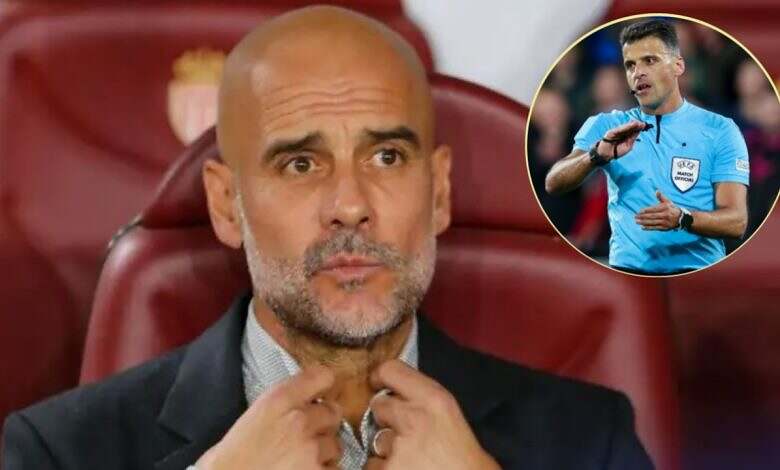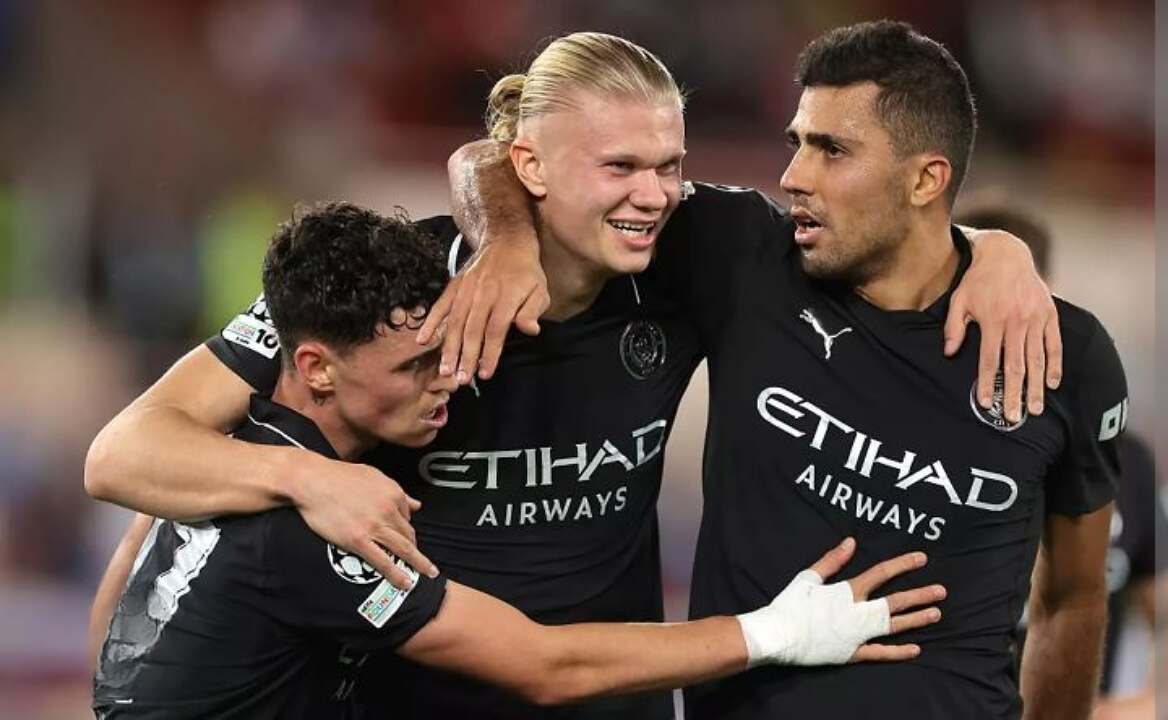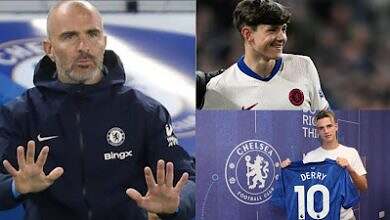Guardiola says he has ‘nothing to say’ on Spanish referees after Man City draw

Despite Erling Haaland’s two goals against Monaco, Manchester City lost three points due to an Eric Dier penalty. Pep Guardiola had “nothing to say to Spanish referees,” but he did have something to say to them, however subtly.
To hear that Dier even played for Monaco, let alone that he is their official penalty taker, will have astonished some of you (certainly not us).
And as a clear sign of his fury, Guardiola gave one of his most eerie, griny interviews following the game after he smashed the penalty kick into the side netting to secure the Ligue 1 team a last-minute draw versus City.
Trending
He had something to say about the situation after telling another reporter that he had “nothing to say to referees” when asked if he thought Monaco should have been given a penalty after Nico O’Reilly was found to have used a high boot in the box on Dier.
Guardiola remarked, “A really good game.” “We made a few choices and created numerous opportunities. Sadly, we failed to defend an unfair free-kick flawlessly in the end, and we let up a penalty because [Nico] touched the ball first without intending to. However, it is what it is.
When asked if he believed it was a penalty, Guardiola responded, “I don’t know. So, it’s penalty. Given. That’s all.”
Haaland’s first goal consisted of him darting in behind the Monaco defense to get on the end of a beautifully weighted pass over the top by Josko Gvardiol, then lifting the ball over Philipp Köhn.
His second goal involved him flexing his neck muscles to head Nico O’Reilly’s cross into the far corner. As usual, he didn’t do much else, but he’s back to his best this season in front of goal.
O’Reilly’s boot was high, and even though it’s undoubtedly the kind of foul for which the award of a penalty feels completely unfair, the fact that he got a touch on the ball doesn’t make the referee wrong in pointing to the spot.
Guardiola revealed, “He played really good.” He appeared to be a man who would rather grunt at the reporter’s questions or use a facial expression to reveal his thoughts instead of providing those already scant responses.
What really nags after a game like that isn’t just the points dropped, it’s the questions that won’t be easily forgotten.
How did a match that seemed under City’s control end up being decided from the penalty spot? Why did Guardiola, usually measured even when furious, give one of those half-smiles that says more than any rant could? And why does Erling Haaland keep doing the one thing managers dream about.

He Score when it matters, while everything around him sometimes looks like it’s running on borrowed time?
Football fans will argue until the cows come home about whether that high boot should have been punished with a penalty.
The rulebook is a maze of intent, contact and consequence, and on the night the officials chose the interpretation that gave Monaco a lifeline. It’s the kind of decision that changes narratives.
For Guardiola, whose teams pride themselves on control and precision, conceding from a contentious moment puts a dent in the veneer.
He will get over it, he always does but the image of him answering questions with a look rather than an answer felt like a man deliberately narrowing his words because he knew they’d be used in headlines.
Then there’s Haaland. Two goals, both textbook in their own right, one running the channels, one muscling in the air. He’s the cold centre of City’s attack, the kind of forward who doesn’t need to outshine everyone else with flair so long as he keeps doing what he does best and put the ball in the net.
Yet even his clinical finishing couldn’t paper over some deeper worries. City created chances, they carved openings but defensively they left gaps that should not exist when your manager’s playbook has been refined to near perfection.
You could see it in transitional moments, in the way Monaco found pockets between the lines, and yes, in how a set-piece or chaotic scramble ultimately handed them a route back into the game.
Monaco deserve credit. They showed fight, they took their chances, and they trusted a player to take the penalty that many wouldn’t have expected. Those are the little things that changed games.
It’s also a reminder that football isn’t only about tactics on paper, it’s about, who keeps calm, who panics, and who turns a referee’s call into motivation instead of an excuse.
What does this mean for Guardiola and City moving forward? Fine margins decide seasons at this level.
If Guardiola wants to avoid nights like this becoming a pattern, he’ll need to tighten the defensive choreography and maybe rethink how his squad manages the greasy moments of matches, the 70th- to 90th-minute grind, where concentration drops and odd decisions happen.
He’s got the players to adapt. He’s also got the managerial instincts to nudge them in the right direction.
There’s a human aspect that always matters. Managers will grumble, pundits will have a field day, and the internet will produce its usual hot takes. But football also rewards the teams who learn quickest from these nights. City have a habit of turning discomfort into correction.
Haaland keeps scoring, Guardiola keeps his poker face, and opposition teams keep believing they can nick something.
That mix is why the season still feels alive and why, in a few weeks’ time, nobody will remember how the point was lost; they’ll remember how the team reacted afterwards.






